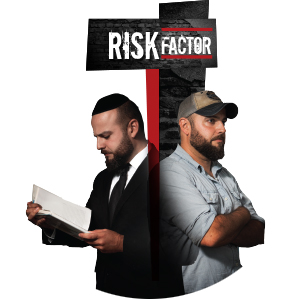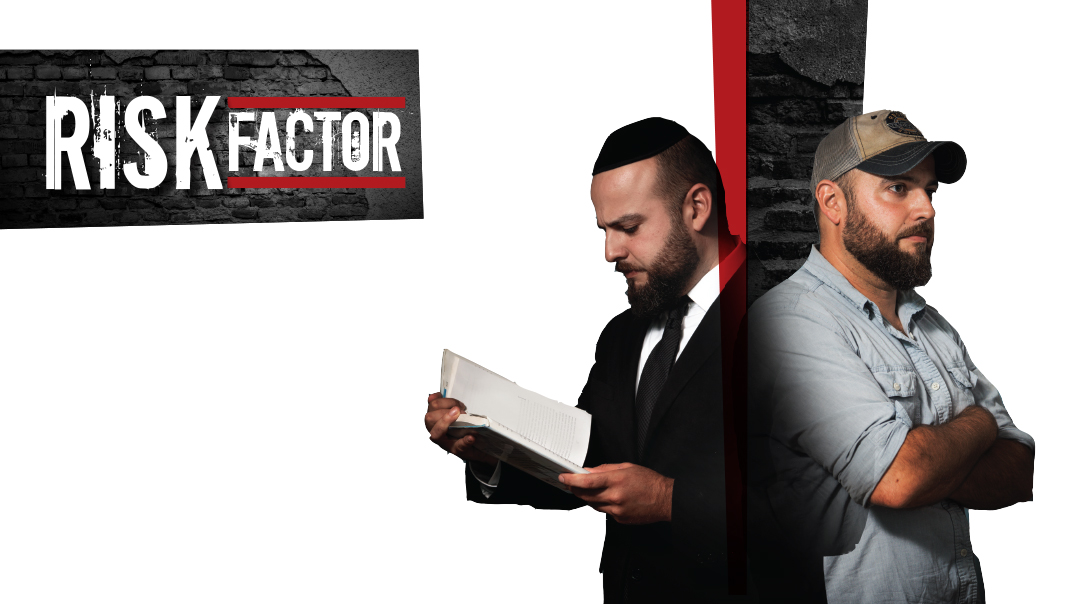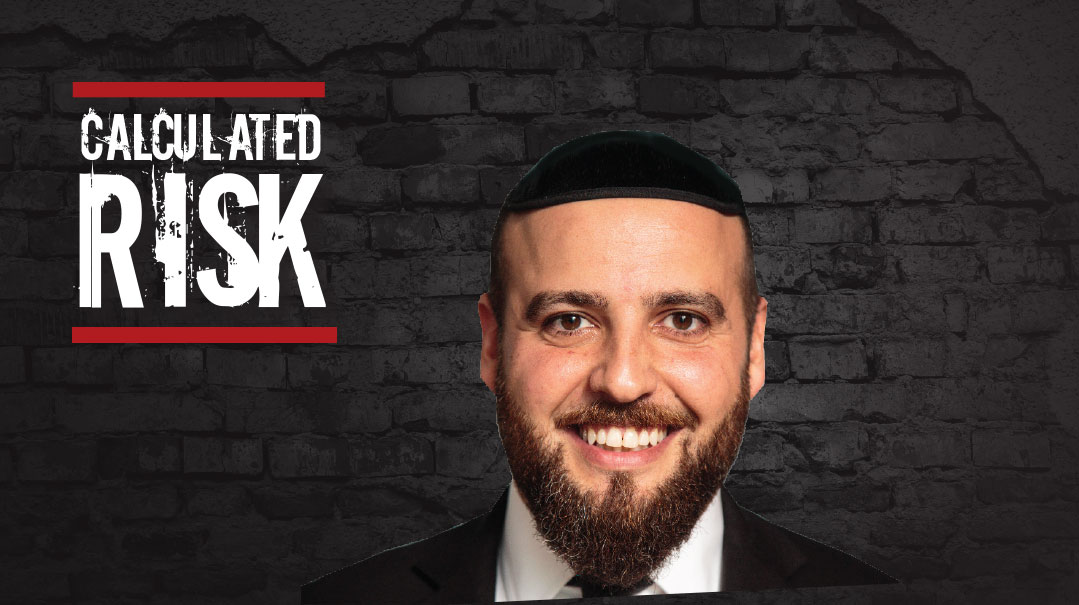Letting Go

I

When you look into someone’s eyes, you can see their pain. If the eyes of someone suffering through unspeakable pain hurts you, then don’t ever look into the eyes of that person’s parents. It will destroy your world.
This couple introduced themselves as the Mullers, and they told me a story I’ve heard dozens of times before. Their son Chaim was always a little different; he was diagnosed with every psychiatric acronym in the book; he’s on three or four medications; was passed from yeshivah to yeshivah like a disease. Extremely bright. Experimenting with substances. Sleeps all day.
“He’s doing better than he has been in a while, but he still can’t get it together,” his mother complained.
“What’s ‘it’?” I asked.“You said, “He can’t get it together.’ What’s the ‘it’ that he can’t get together?”
“Being normal!”
This was going to take a little pushing. “What’s normal?”
“All I want is for him to be a mensch.” She sounded defensive.
“Well, he could be a mensch, he just doesn’t know what it looks like,” said her husband.
“Doesn’t know what it looks like?! We’ve spent years telling him exactly what it looks like!”
Well, that was probably part of the problem.
They argued for another minute, then Rabbi Muller turned to me. “You see? He tears our family apart!”
Their disagreements were Chaim’s fault. I tried not to sigh.
“Who told you to come to me?” I asked.
“A mekubal.” He named him, someone I’d never heard of. I swallowed another sigh. They weren’t taking any responsibility, just searching for the trick that would turn their son into what they wanted him to be.
“He’s seeing a therapist,” Rabbi Muller added, “but he’s a young guy, new to the field. I don’t think he knows what he’s doing. He needs a seasoned professional.”
I smiled. “I’m not a therapist,” I said.
They looked stunned. (I guess the mekubal hadn’t mentioned that.)
“Is your son happy with the therapist he’s seeing?”
“Yes.”
“Is he making progress?”
“I guess.”
“Has the therapist given you advice that you’re uncomfortable with?”
“Yeah! He said we should stop expecting things from Chaim!” Mrs. Muller’s voice was rising. “What does that mean, ‘no expectations’? I’m his mother!” She paused and then added, “And I told the therapist that the rav said we should get you involved, and he said he can’t share anything with you unless Chaim lets!”
“He’s right,” I said quietly.
“Fine, so I’ll tell Chaim to tell him it’s okay.”
“I meant he’s right about everything he said. You need to let up. No expectations. No conditions. Just accept him as he is. Let the therapist do his job. You don’t need me involved.”
I could see they were disappointed. “You’re going against the rav,” said Rabbi Muller darkly.
I let the silence hang, giving everyone a chance to think. Chaim’s parents clearly wanted one thing from him — that he walk the walk, talk the talk, toe the line. But Chaim had his own path to take. And they had a choice of their own to make.
“When was the last time you had a conversation with your son?” I asked finally.
“This morning,” his mother said.
“What did you talk about?”
“I told him I read that vaping can kill quicker than smoking.”
Ugh. “And the conversation before that?”
“I told him I want to take him out for lunch,” she said.
“Really? Wow!” I was genuinely impressed.
“Yeah, I told him we can go get him a haircut because his hair is covering his eyes already, and we can go for lunch after. I knew if we did lunch first he wouldn’t get the haircut.”
This time the sigh escaped. Chaim had a therapist he liked and was willing to work with. The only thing his parents needed to contribute was also the thing only they could contribute: their love and support. But his parents were instead giving him the opposite message by trying to force his hand.
“What’s his favorite vape flavor?” I asked.
“Are you crazy?” She looked like she was going to pass out. “How should I know?”
“You could ask him. Look,” I continued, “every time you talk to Chaim, you want something from him. You’re always trying to get him to change into who you want him to be. But he’s already working on changing — with his therapist. You need to talk to him about other things. Things he finds interesting.”
“Why? So he should think I like what he’s doing?”
“No, so he should think you like him, whatever he’s doing.”
“I can’t do that.”
“Then I can’t help you.”
“I don’t want you to help me! I want you to help my son!”
“Your son is getting help, and from what you tell me, he’s doing well. He would do even better with your unconditional support. And,” I said bluntly, “if you don’t make some changes, then even if he ‘gets it together,’ as you put it, he’s going to separate himself from you.”
She stared at me from across the desk. “This is going to be very hard for me,” she said finally.
I nodded. Chaim was holding on, even though he wanted to let go. Letting go when you are desperate to hold on can be even harder.
“In the beginning it will be tough. But I promise you that if you let go of your expectations and your need to change him, and replace them with acceptance and love, you will change the way you feel about him and the way he responds to you.”
“But I do show him love,” Mrs. Muller said. “I gave him a gift and wrote him a beautiful note and a present when he left to this new yeshivah.”
“May I venture to guess,” I said, “that you said in your letter how much you hope this year he finds what he needs, or something along those lines? And the gift was a sefer?”
“A Tehillim,” she said quietly.
“Mrs. Muller, I know you had the best intentions. But right now, Chaim cannot be loved the way you want. If you want him to feel your love, he has to be loved the way he wants. All he’ll see in a note like that is that you’re disappointed in him.”
I know she got it because I could see her tears. But I could also see her resolve.
A few weeks later the Mullers took Chaim out to lunch again. No agenda this time. Just to spend time with him.
“It was hard for me,” Mrs. Muller reported. “But I bit my tongue. I was really trying not to say anything wrong. I was so quiet that Chaim started talking.” She sounded like a different person. “Then after lunch we were walking around and he noticed a leather jacket in a window display. He pointed it out to us and said, ‘That’s so cool!’
“You know,” she admitted, “I hate hearing him use the word ‘cool.’ And he was saying that this goyishe coat is cool! But then I had the greatest idea. I said I was tired and asked them to go get the car. While they were gone I bought him the coat.” She was grinning. “Before we dropped him off at yeshivah I gave him that leather jacket and a card. You should have seen the look on his face!” She started to tear up. “His rebbi called me yesterday and said he’s been wearing the jacket every day and tells everyone that it was a gift from his mother.”
It was a gift — the gift of unconditional love.
A few days later I happened to be in Chaim’s yeshivah for a meeting. “Still wearing that jacket?” I asked Chaim’s rebbi. “She gets the award for the best gift ever.”
“Forget the jacket,” his rebbi said. “You should see the note she wrote. He taped it to the wall near his bed.”
“Really?” I was shocked. “What did it say?”
He walked me over and pointed to the wall.
Dear Chaim, the note said. You’re the coolest guy I know. Love, Mommy.
(Originally featured in Mishpacha, Issue 789)
Rabbi Yossi Bensoussan serves as mashgiach ruchani at Yeshiva High School of Cleveland. He is a Certified Alcohol and Substance Abuse Counselor (CASAC) who currently maintains a private practice, and does motivational speaking and community education on addiction all over the US and Israel.
Oops! We could not locate your form.









